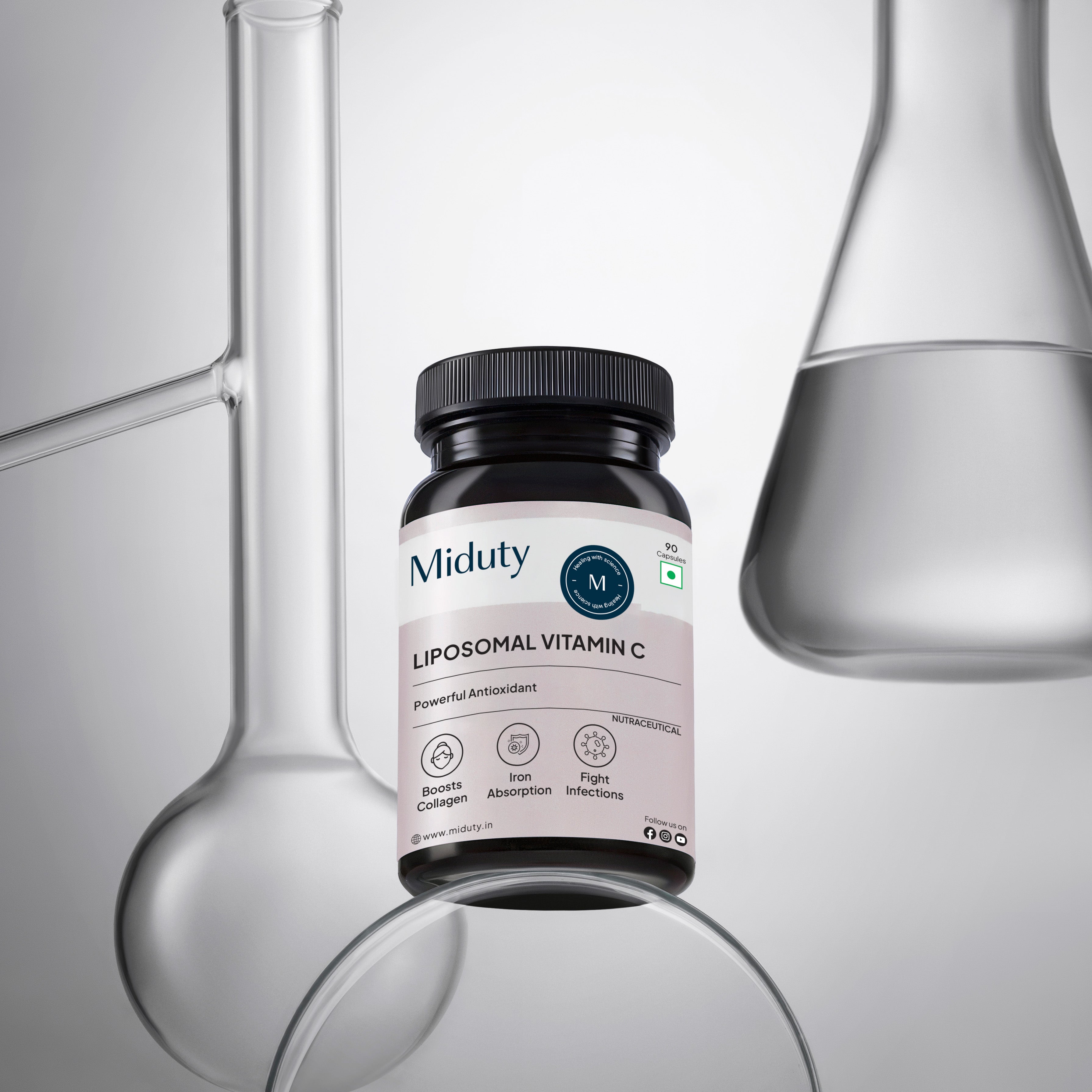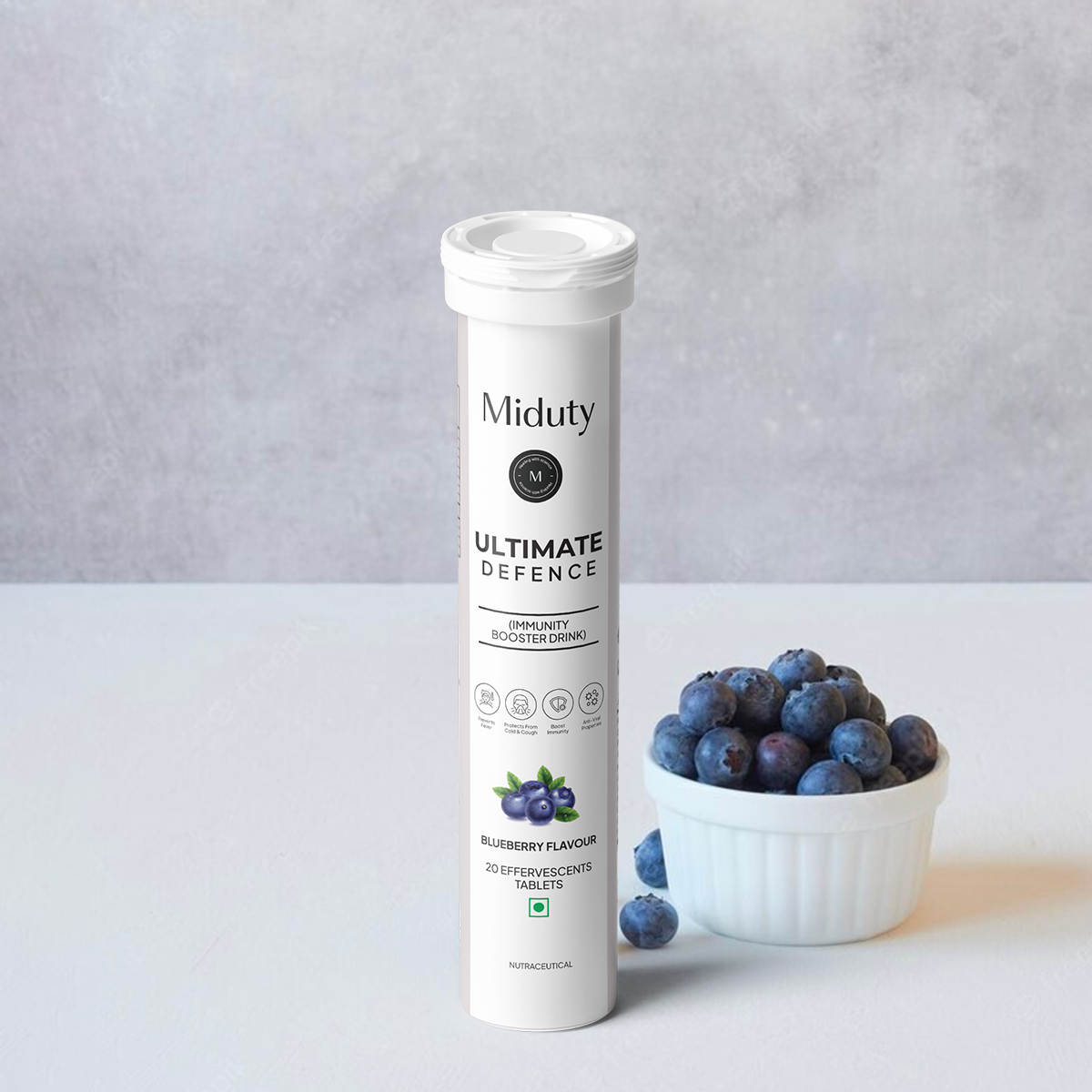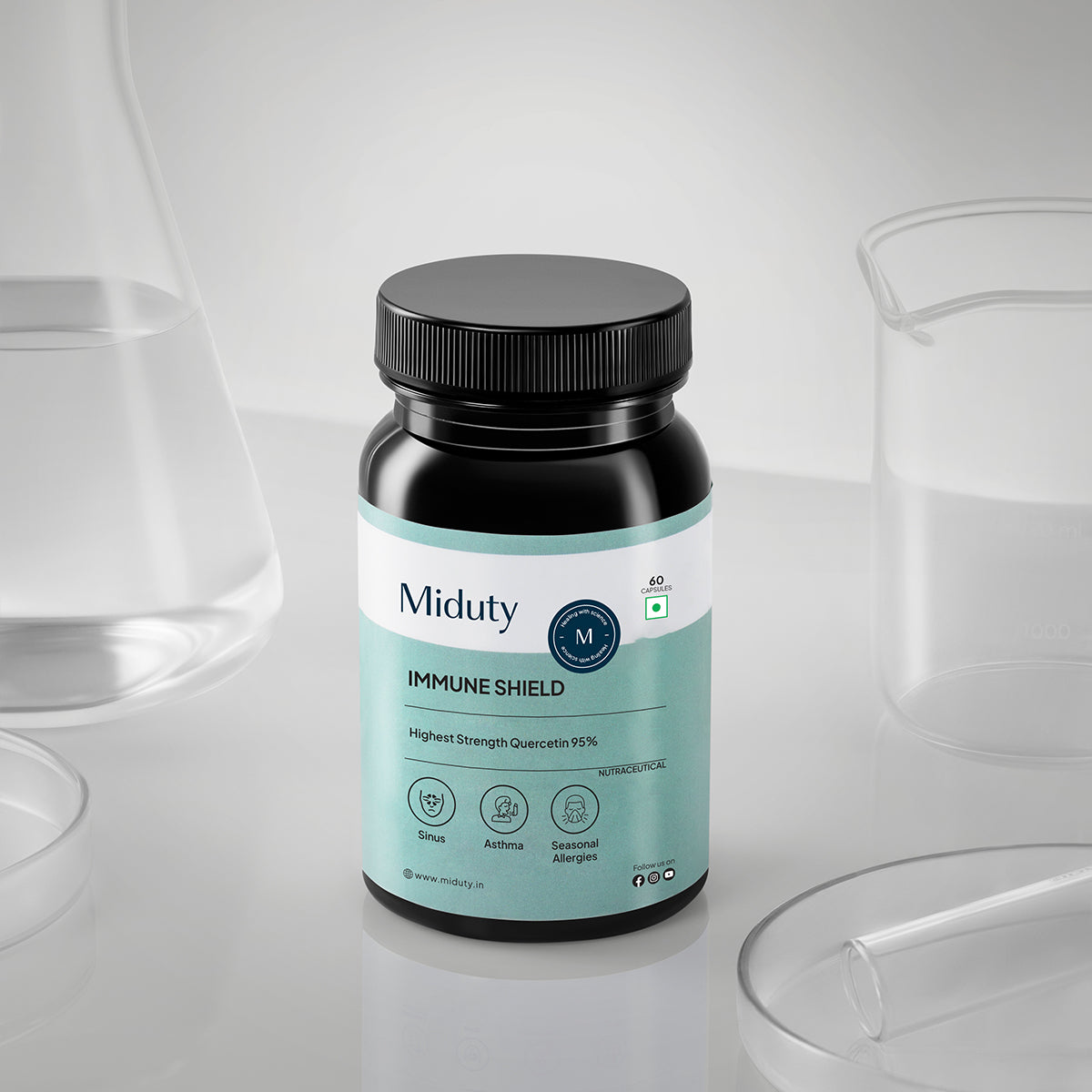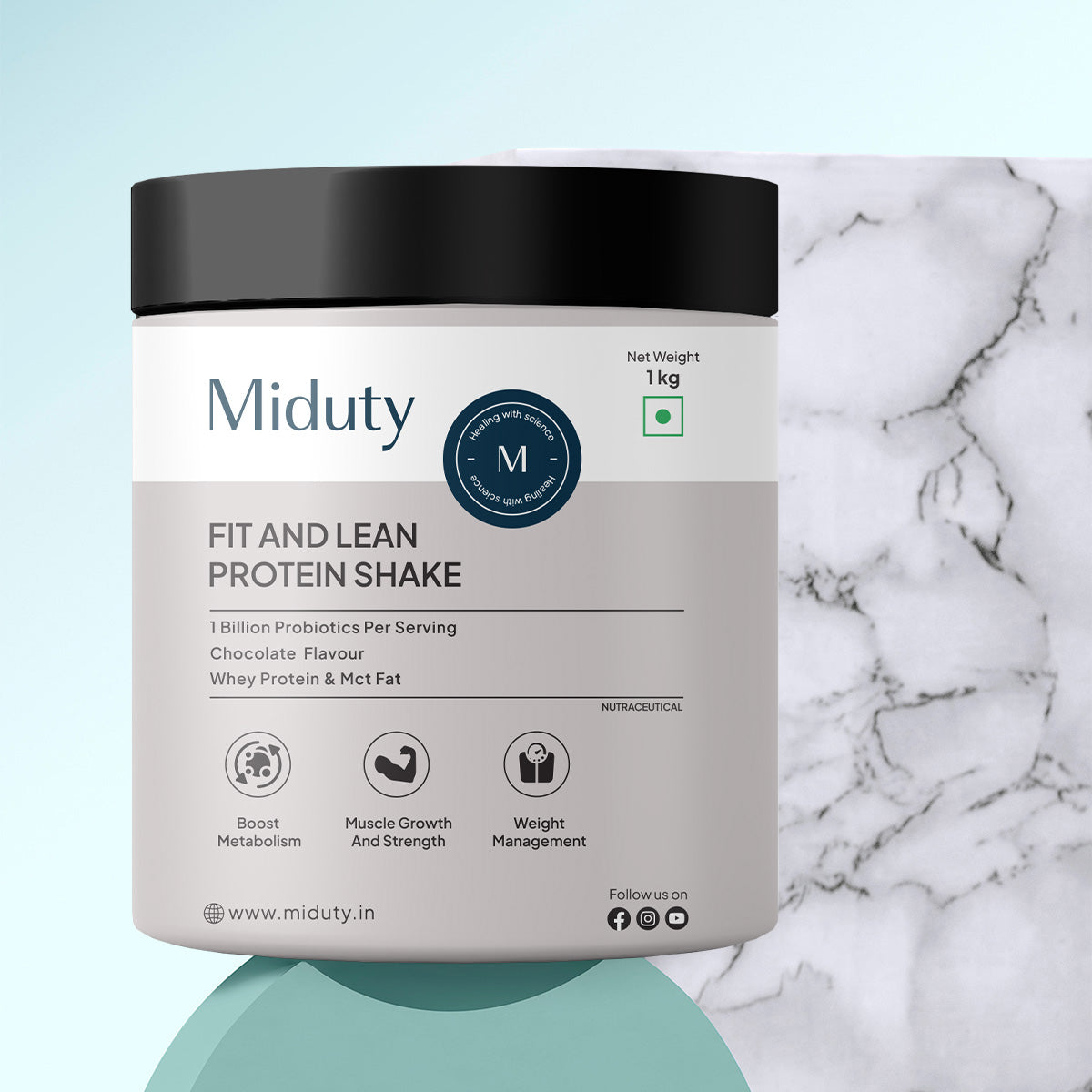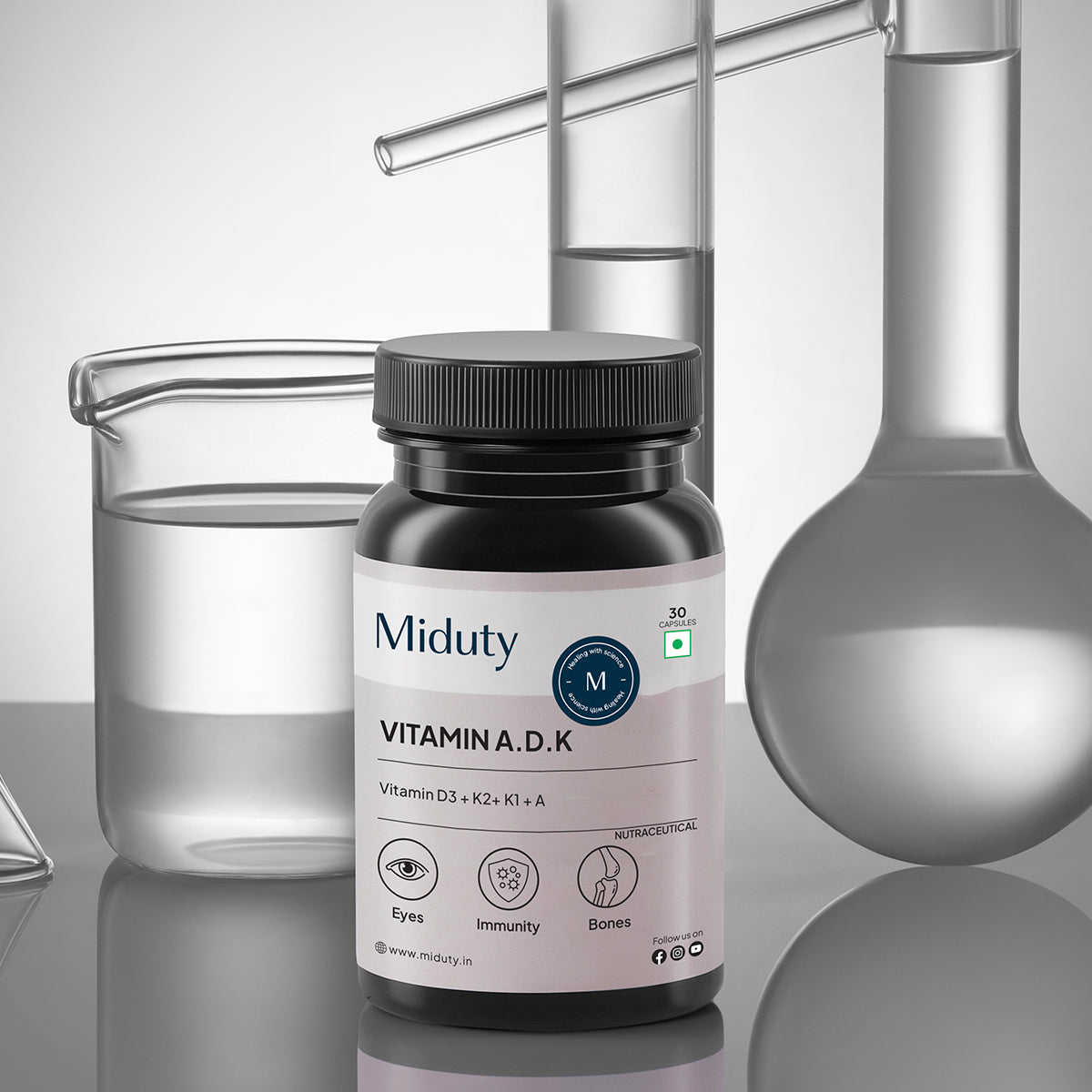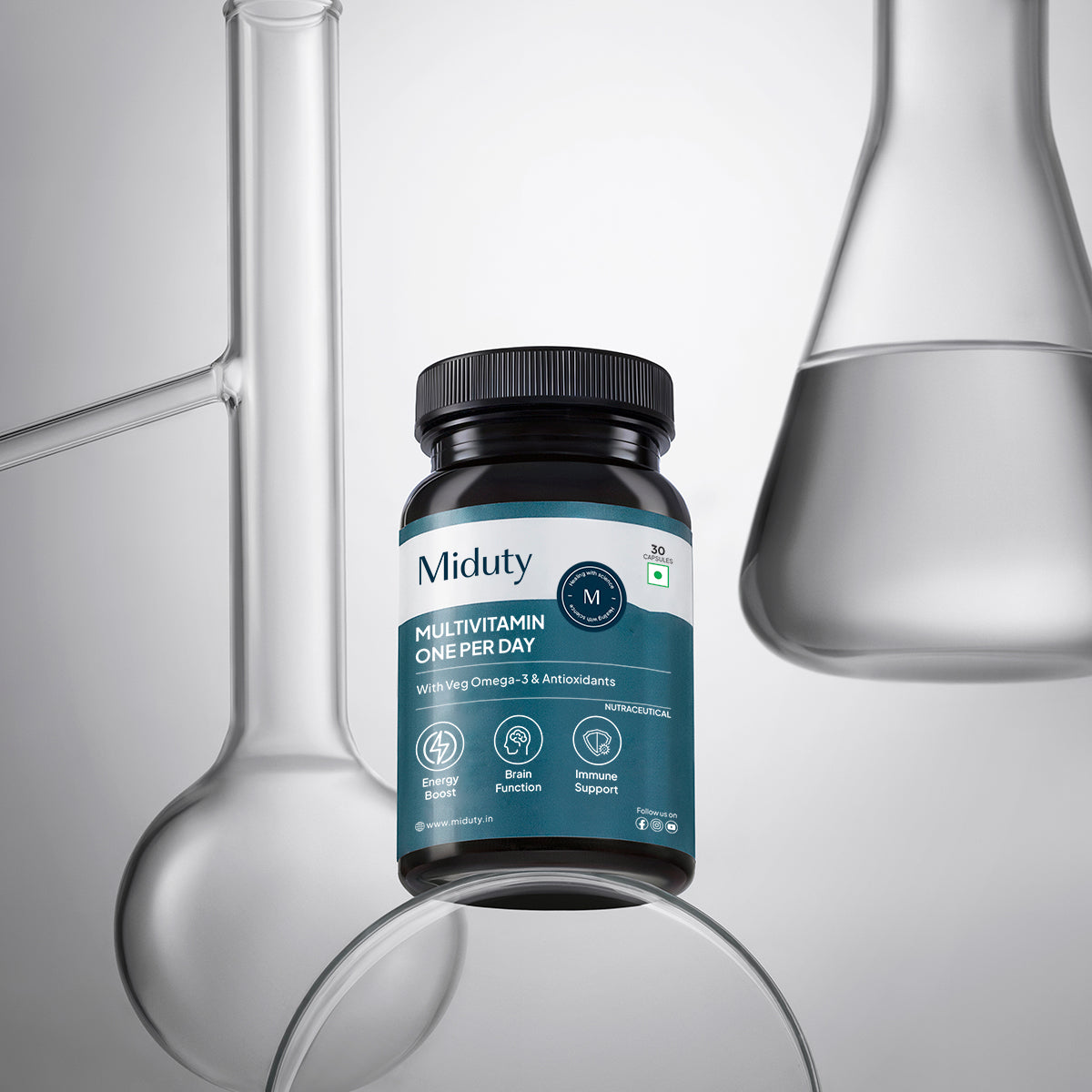
How To Increase Immunity in Kids - A Complete Guide on Kid’s Immunity
Kids today face more immune challenges than previous generations, pollution levels are higher, diets have become more processed, physical activity has reduced, and stress levels in children have quietly increased. Immunity isn't just the body's defense system; it is the foundation that determines how well a child grows, learns, plays, and fights off illness. When kids fall sick frequently, it affects their physical development, cognitive growth, school attendance, and even emotional well-being. That's why building a strong immune system is not optional; it's essential.
According to the American Academy of Pediatrics, young children can catch 8-12 colds per year because their immune systems are still learning to recognize and fight germs. This doesn't mean something is wrong; it simply means immunity grows with exposure, nourishment, and healthy lifestyle habits.
Parents often ask: "How can I naturally improve my child's immunity? Research shows that nutrition, sleep, physical activity, gut health, hydration, emotional balance, and proper hygiene play profound roles in strengthening immunity.
In this blog, we will explore not just traditional advice but deeply researched, science-backed, and practical strategies that genuinely help boost immunity in children.
Key Takeaways
1. Breastfeeding and Vaccination are Crucial - Breastmilk provides antibodies and immune cells, while vaccines teach the immune system to fight specific pathogens safely.
2. Nutrition is Key - A balanced diet rich in proteins, vitamins (A, C, D, E), minerals (zinc, iron, selenium), and antioxidants supports immune cell production and overall resilience.
3. Gut Health Matters - Probiotics from homemade curd, fiber, and a healthy microbiome reduce infections and strengthen immunity naturally.
4. Sleep, Play, and Sunlight Boost Immunity - Age-appropriate sleep, daily outdoor activity, and safe sun exposure support immune development and overall well-being.
5. Hygiene and Smart Exposure - Proper handwashing, respiratory etiquette, and moderate exposure to everyday microbes help train the immune system without over-sanitizing.
Understanding the Child's Immune System
The immune system has two main components: [1]
1. Innate immunity: This is your child's first line of defense. It includes the skin, mucous membranes, white blood cells, and inflammatory responses. It acts immediately against pathogens but does not provide long-lasting immunity. [2]
2. Adaptive immunity: This system learns and remembers specific pathogens, producing targeted antibodies. It develops over time and is strengthened by vaccinations, infections, and exposure to a variety of microbes.
A child's immunity relies on both these systems working together. While innate immunity is crucial for immediate protection, adaptive immunity ensures long-term resilience against diseases. [3]
How Immunity Develops in Early Childhood?
From birth to around 6 months, babies rely heavily on passive immunity obtained from their mother through the placenta and breastfeeding. [4] After this, their immune system must actively learn to fight infections. Early exposure to germs through play, interaction with peers, and a safe environment helps train the immune system to recognize threats. Research highlights that children who experience moderate exposure to microbes develop more balanced immune responses and are less prone to allergies and autoimmune conditions later in life. [5]
Most Common Immunity Challenges in Kids
Kids get sick more frequently than adults, not because something is "wrong," but because their immune systems are still under construction. Understanding the challenges helps parents take proactive steps instead of reacting after illnesses strike.
1. Frequent viral infections: According to the Centers for Disease Control and Prevention (CDC), children under the age of six experience more colds and respiratory infections than any other age group. School-going kids, especially those in daycare or kindergarten, come into contact with many new microbes daily. Each new virus becomes a "lesson" for their immune system, which is why the first few years of school can feel like a never-ending cycle of sniffles and fevers. [6]
2. Environmental factors: Rising air pollution, exposure to chemicals in household products, and reduced outdoor play limit a child's ability to build natural immunity. Pollution weakens respiratory health, making kids more prone to asthma, allergies, and frequent throat infections. Studies published reveal that children living in polluted areas have significantly higher inflammatory markers and weakened lung defense mechanisms. [7] [8]
3. Diet-related challenges: Kids today consume more ultra-processed foods, sugary snacks, flavored drinks, and packaged meals. These foods cause inflammation, reduce beneficial gut bacteria, and deprive kids of essential vitamins and minerals needed for immune development. A study found that diets high in refined sugar reduce the activity of white blood cells for up to five hours after consumption, meaning immunity temporarily drops after sugary meals. [9]
Importance of Nutrition in Building Strong Immunity
Nutrition is the foundation of a strong immune system. Children require a balanced intake of macronutrients (proteins, fats, carbohydrates) and micronutrients (vitamins, minerals) to support the production of immune cells, antibodies, and signaling molecules.
Nutrient Absorption in Kids
- Protein: Essential for antibody and white blood cell production. Sources include eggs, milk, fish, poultry, lentils, beans and protein shakes.
- Fat-soluble vitamins (A, D, E, K): Require dietary fat for absorption and are critical for immune regulation.
- Micronutrients (zinc, iron, selenium): Support enzymatic reactions in immune cells.
How to Boost Immunity in Kids?
1. The Big Three Foundations (Highest Impact)
A. Breastfeeding (for babies)
Breastmilk provides antibodies, immune cells, and dozens of bioactive molecules that shape the infant's immune system and gut microbiome, protecting against ear infections, diarrhoea, pneumonia, and more. WHO/UNICEF recommends exclusive breastfeeding for the first six months, continued with complementary foods up to 2 years or beyond when possible. [10] ,[11]
B. Vaccination (the safest, most powerful protection)
Vaccines teach a child's immune system to recognize and fight specific germs without causing the disease. Routine childhood immunization has cut child mortality dramatically worldwide and prevents severe illness from diseases like measles, polio, DPT, Hib, pneumococcus, rotavirus, and influenza. Keep the immunization schedule up to date. [12]
C. Hand hygiene & safe environment
Teaching kids to wash hands properly, especially before eating and after toilet use reduces transmission of diarrhoeal and respiratory infections. Community studies show handwashing can prevent roughly 30% of diarrhoeal illnesses and about 20% of respiratory infections. Clean water, safe sanitation, and household hygiene are also critical. [13]
2. Key Nutrients
A. Protein
Needed for antibody and immune-cell production. Ensure adequate age-appropriate protein from milk, dals, eggs, fish, chicken, paneer, and legumes.
B. Zinc
Essential for immune function. In many settings, daily zinc (or therapeutic zinc for diarrhea) reduces the severity/duration of diarrhea and can lower the risk of respiratory infections; the WHO recommends zinc for treating childhood diarrhea. [14]
C. Vitamin D
Important for immune modulation. Some studies suggest that supplementation reduces respiratory infections in certain groups, but the evidence is mixed. Maintaining adequate vitamin D status (through safe sun exposure or supplements when deficient) is a reasonable approach. [15]
D. Vitamin C / Antioxidants
Fruits and vegetables supply antioxidants that support immune cells.
E. Omega-3s
Small amounts of fish and dietary fiber support gut health and lower inflammation.
Practical plate for kids:
- Aim for a colourful plate: fruits/vegetables, a protein source, whole grains, and a small dairy portion (if tolerated).
- Include iron-rich foods (dal with lemon, green leafy vegetables, fortified cereals) combined with vitamin C for better absorption.
- Limit frequent sugary snacks and processed foods; excess sugar can impair immune response transiently.
- Homemade curd/dahi: natural probiotics that help gut microbiome (avoid sugary commercial probiotic drinks for toddlers).
3. Supplements
A. Multivitamins
Usually unnecessary for well-nourished children eating varied diets. Consider a kids' multivitamin supplement when a diet is poor, when the child lacks energy, and is a picky eater.
B. Vitamin D
Safe sun exposure (10-15 minutes, 2-3 times a week) helps synthesize vitamin D, which regulates immune cell activity. Vitamin D deficiency is linked to increased risk of infections, asthma, and autoimmune conditions in children; hence, supplementation becomes essential along with the diet. [15]
C. Zinc
WHO recommends therapeutic zinc for children with acute diarrhoea (10-14 days course), and zinc programs are beneficial in at-risk populations. Routine preventive zinc may be helpful in areas with known deficiency, but discuss with your doctor first. [14]
D. Probiotics
May reduce antibiotic-associated diarrhoea and modestly reduce duration of gastroenteritis in kids; choose strains with evidence (e.g., Lactobacillus rhamnosus GG) and follow pediatric guidance.
4. Sleep, activity, and mental well-being
- Sleep: kids need age-appropriate sleep (toddlers 11-14 hours; school-age 9-11; teens 8-10). Poor sleep weakens immune responses. A 2015 study in Pediatrics showed that children with less than 8 hours of sleep per night were 2.5 times more likely to catch colds than well-rested children.
- Physical activity: regular moderate activity supports immune health and reduces infection risk long-term.
- Stress & routines: chronic stress impairs immunity. Stable routines, playtime, and emotional support help.
Practical tips:
- Set consistent bedtimes and wind-down routines (no screens 1 hour before bed).
- Encourage daily outdoor play (sunlight helps vitamin D and mood).
- Limit screen time and promote play-based exercise.
5. Importance of Hygiene Without Over-Sanitizing
- Soap and water remain the most effective method for hand hygiene.
- Avoid excessive use of sanitizers or antibacterial soaps.
- Teach respiratory etiquette: cover coughs/sneezes, use tissues, avoid sharing utensils when ill.
- Avoid unnecessary antibiotic use; antibiotics don't help viral infections, and overuse drives resistance.
Creating a Healthy Daily Routine for Stronger Immunity
- Morning: Sunlight exposure, hydration, balanced breakfast with fruits and protein
- Daytime: Outdoor play or sports, school meals with variety
- Evening: Snack with fruits or nuts, light physical activity
- Night: Relaxation, storytelling, consistent bedtime routine
What to do this week?
- Check that your child's vaccinations are on schedule. If not, book an appointment.
- Put a handwashing routine in place at home and practice it with them.
- Serve at least one extra fruit/vegetable per day and include a protein at each meal.
- Prioritize sleep and daily play/outdoor time.
- Plan a well-informed routine of the supplements along with a healthy diet and lifestyle changes.
Conclusion
Strengthening a child's immune system requires a multi-faceted approach: nutrition, sleep, exercise, gut health, sunlight, emotional well-being, and proper hygiene. Science shows that children who follow a balanced lifestyle have fewer infections, better growth, and improved energy and learning capacity. Parents can make small, consistent changes in daily routines that have lasting effects on their child's immune health.
FAQ's on Boosting Immunity in Kids
Q1. What is the best immune booster for kids?
There is no single "best" immune booster. Immunity grows through a combination of good nutrition, proper sleep, physical activity, sunlight, gut health, vaccination and supplements. A balanced lifestyle is more effective than any one food or supplement.
Q2. What are the signs of weak immunity in kids?
Frequent infections, slow recovery from illnesses, recurring colds, poor appetite, fatigue, and repeated digestive issues often indicate reduced immunity.
Q3. What age do kids' immune systems get better?
Children's immune systems strengthen steadily and become more resilient around ages 6-7, as they gain exposure to common germs. By adolescence, the immune system functions almost like an adult's.
Q4. What are 5 signs of a strong immune system?
Quick recovery from common illnesses, good energy levels, healthy appetite, fewer frequent infections, and good gut health (regular digestion) are all signs of a strong immune system in kids.
Q5. Does sugar weaken immunity in kids?
Yes. Studies show that high sugar intake can reduce white blood cell activity for several hours, lowering the body's ability to fight infections. Frequent sugary snacks may also harm gut health and increase inflammation.
References


